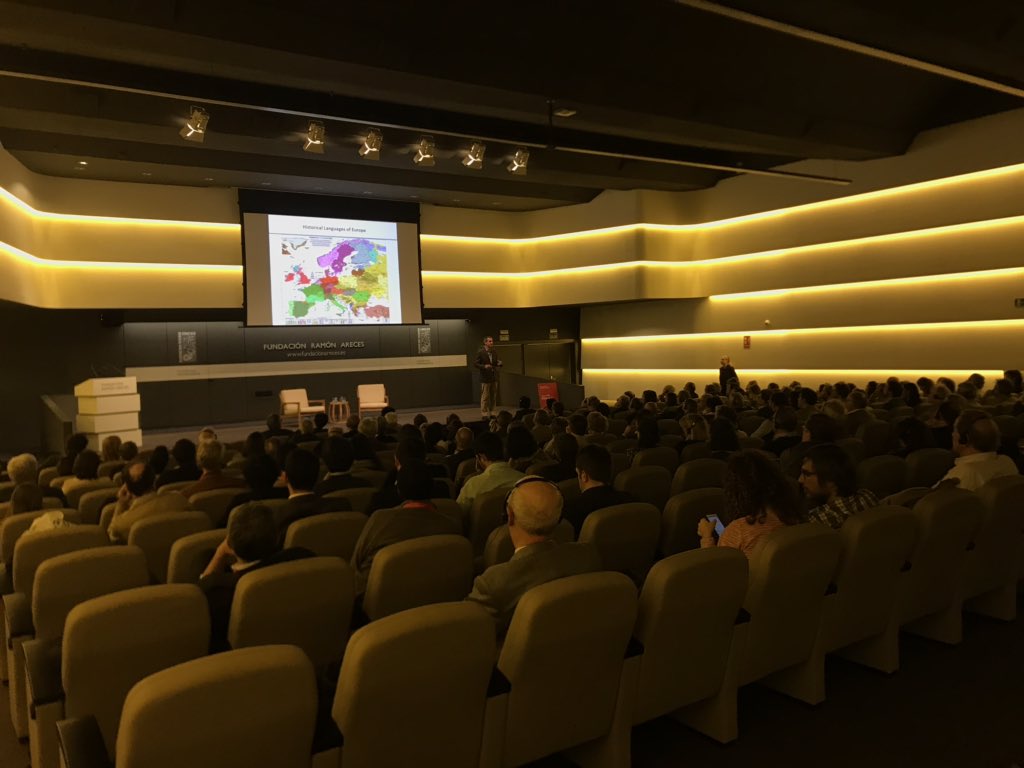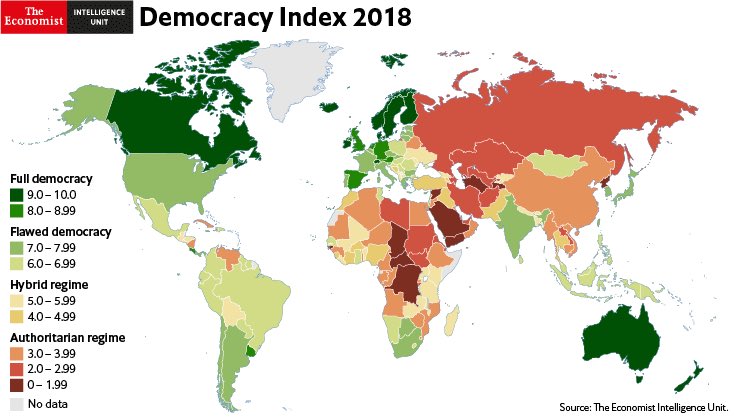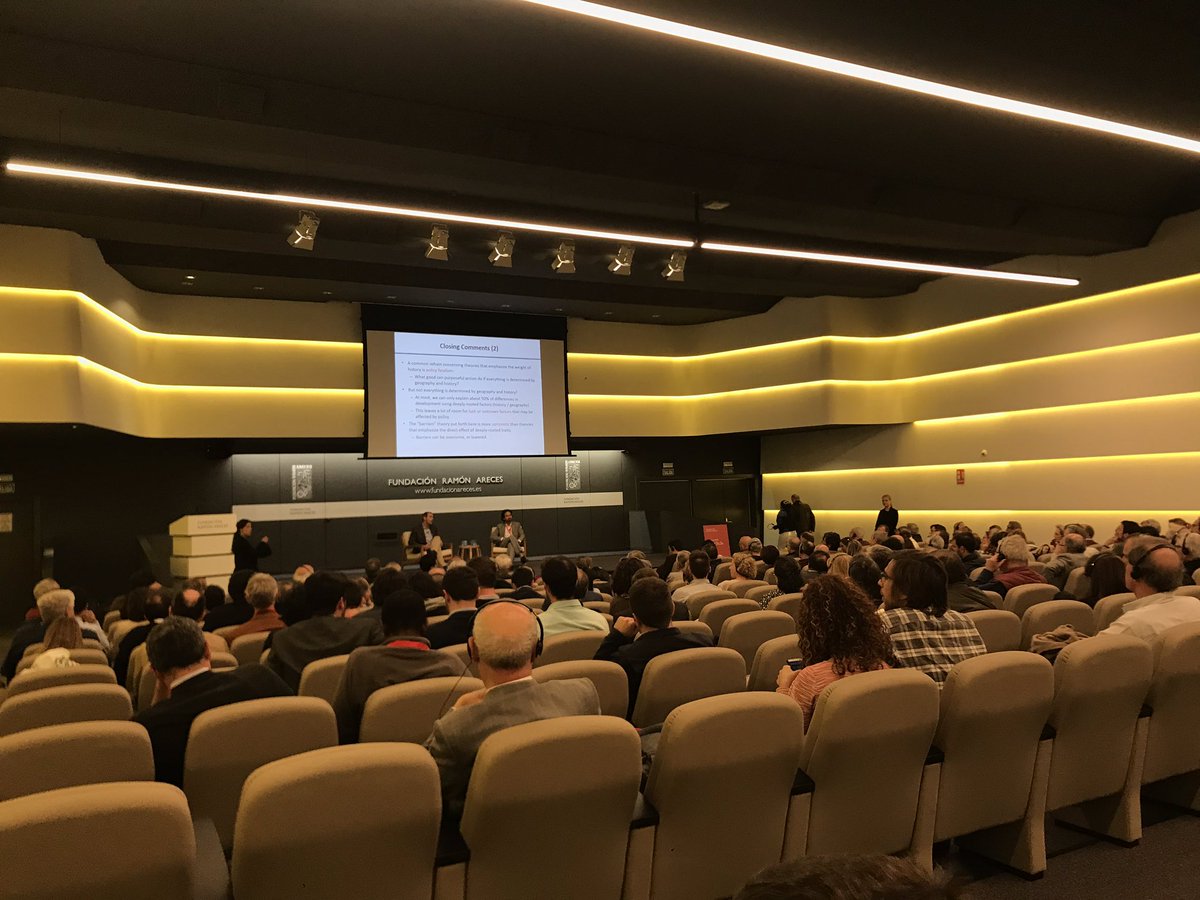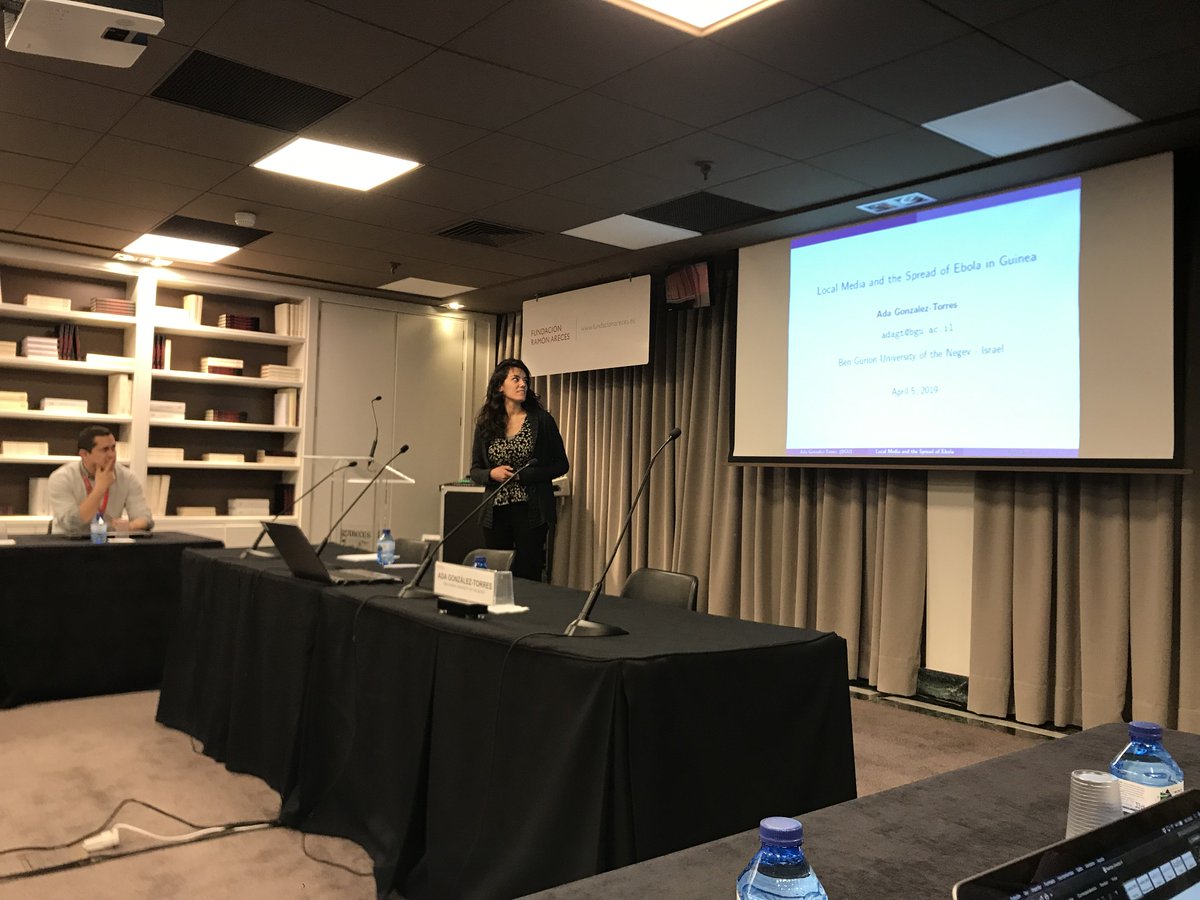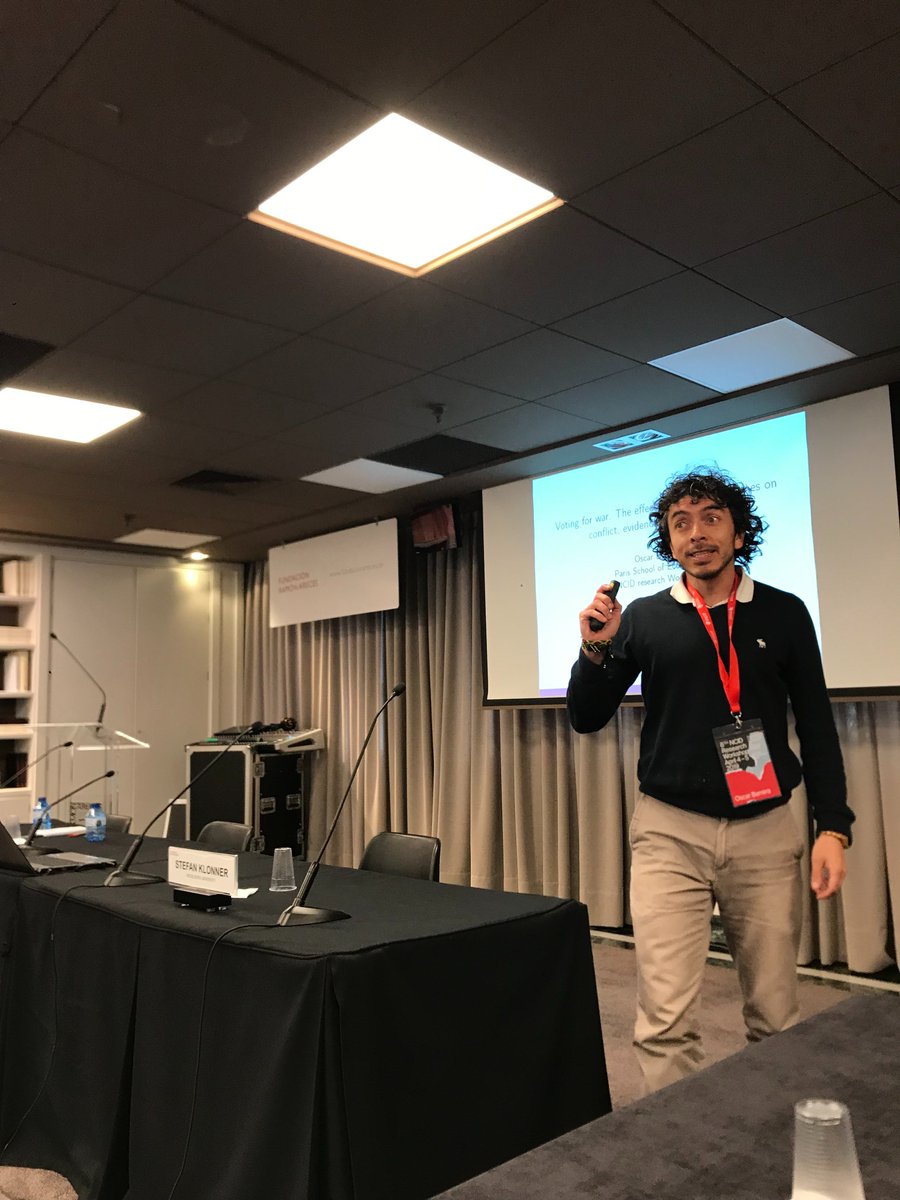Fertility rates also help to explain. However, there are different paths to wealth. For example, France and UK have a similar per income capita, but France was rural and opted for birth control policies whilst UK went industrialized and didn’t need controls.
Democracy is another factor to be considered. Today democracy is in retreat. Being close to innovator in terms of cultural distance —lingüistic, genetic, historical— meant democracy spread faster. ( @TheEIU Democracy Index graph)
War is an intracultural phenomenon rather than between cultures. The closer the cultural distance between, the more likely to fight with each other. “Ancestral barriers can have good effects, but also potentiate negative effects”, explains Romain.
“Ancestral barriers exist and cultura distances affect the development of nations, but the message I want to leave is that these barriers can be overcomed”, finalizes Romain. He receives a huge round of applause from a packed auditorium. 





The debate starts now moderated by @j_fgomes. The first question is on how Japan fits into his model, being so geographically and culturally distant to Western nations.
Hey hey hey! We're back here with our second day of the #8thNCIDResearchWorkshop. There's four seminars to go. First on is Jonathan Lehne from @PSEinfo with his presentation An Opium Curse? The Long- Run Economic Effects of Nar- cotics Cultivation in British India.
Second up is Ada González-Torres from @bengurionu. She is presenting her paper Local Media and the Spread of Ebola: Evidence from Guinea. Can broadcast information halt the spread of an epidemic? Let's answer this question
The investigation focuses on the ebola epidemic in Guinea between December 2013 and April 2016. The experiment outcomes the effect on beliefs, the stated behavior and the cultural practices.
"Seven months after the start of the campaign in local radio, there is a drop in ebola cases, whilst in regions where local radio didn't reach the drop came much later", Ada explains. This investigation tries to contribute on the impact of media on the actual spread of a disease.
Stefan Klonner from @UniHeidelberg is now up presenting his paper Ethnic Favoritism in Targeted Welfare Programs. Decentralized targeting of welfare programs can result in moderate distortions along ethno-religious lines and disadvantage minorities.
Óscar Barrera from @PSEinfo is presenting his paper Voting for War. The Effect of Electoral Outcomes on Conflict, Evidence from Colombia. FARC former combatants returned to the guerrilla after the peace deal, as there is a large generalized unfavorable opinion of them.
How can you explain such bad reputation? Not difficult to explain: bombing, kidnapping, minefields, recruitment of minors. But do these explain the full picture? No. Óscar says bad reputation from ideological purposes and mass media with biased propaganda also play a role.
This paper is on the relationship between elections and violence. It also analyzes elections in dangerous places, which finds the reverse effect of democracy on political legitimacy and stable governance, and how next generations willl perceive the Colombian conflict.
Oscar's hypothesis is: "There is an ideological biased component on the records of homicides reported over the Colombian conflict".
That's a wrap! The #8thNCIDResearchWorkshop is over after two intense days where thirteen speakers have presented their brilliant investigations on political economy of development. We thank the 212 people who came yesterday to the Keynote and @FundacionAreces for hosting us!

 Read on Twitter
Read on Twitter